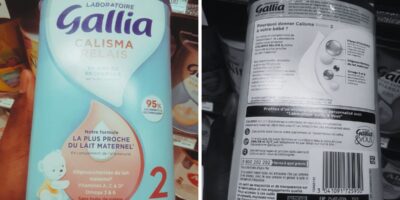The interruption of the Francisque mango import program in the United States is the result of worsening insecurity in Haiti, which is preventing American inspectors in the country from doing their job
Beginning in January 2023, Haiti will no longer be able to export its Francisque mangoes to the United States, according to a decision by the U.S. Department of Agriculture, issued on October 24, 2022.
As the mango harvest season, which runs from the end of January to August 2023, is fast approaching, the news came as a bomb to growers in the department of Artibonite.
“The mango is all our wealth. It will be a great suffering to see that the product is available, but that we cannot market it as desired”, complains Jean Edouard Déus, mango grower in Gros Morne for over a decade.
Haiti will no longer be able to export its Francisque mangoes to the United States.
Its mango trees, which occupy more than two square meters of land, can fill several containers with mangoes, destined for the factories in charge of their export. A 16-foot container can hold four thousand dozen mangoes. “The dozen is sold at 185 gourdes”, says Jean Édouard Déus.
Read also: The conch is becoming extinct in Haiti
The interruption of the mango import program in the United States is the consequence of worsening insecurity in the country which is preventing the American inspectors, installed in Haiti, from carrying out their work. A resumption of activities is planned if the situation improves. But Déus fears the worst since he does not yet see a glimmer of hope for stability.
Other growers are more optimistic. This is the case for Marc Aurel Accéus, a large mango grower in the Plateau Central. “We are negotiating with the U.S. Department of Agriculture. Let’s hope that the discussions will lead to a satisfactory result,” he said.
The news came as a bomb to growers in the department of Artibonite.
Marc Aurel Accéus coordinates the Francisque Mango Growers Association in the Plateau Central. He is the link between the growers in his region and the factory that buys the mangoes for export. According to him, the exporters will look for other markets to sell the mangoes in case they do not reach a consensus with the United States for the next harvest.
Read also: The local variety of coffee disappearing in Haiti
AyiboPost’s multiple efforts to contact the President of the National Association of Mango Exporters, Ralph Perry, were unsuccessful.
The United States of America is the only market to which Haiti sells a large part of its mango harvest. According to official data compiled by the Haitian Central Bank (BRH) mango exports have averaged more than $7 million per year for Haiti. These statistics have been revised as being in decline since the coronavirus pandemic, which has greatly reduced foreign orders.
A resumption of activities is planned if the situation improves.
Despite the low number of orders received, the growers were still able to sell a sufficient amount of mangoes that allowed them to support themselves. “Next January, says Jean Édouard Déus, this will no longer be the case and we will not be able to take care of our family properly”.
The mango industry is divided into two chains: one linked to export and the other to local consumption. The latter, Marc Aurel Accéus points out, is particularly supported by the Madan Sara (rural traders, self-starters) and small vendors. Only the local market is insufficient. « It is far from being able to absorb all of the mangoes produced, without exporting, » affirms Déus, adding that if nothing is done, most of the mangoes from this harvest will end up rotting.
The mango industry is the umpteenth victim of insecurity in Haiti. Gang violence prevents the Americans from inspecting the production process of the fruit in the country. Shipments destined for export factories are sometimes destroyed by armed groups who spread fear in some regions of the country.
Mango exports have averaged more than $7 million per year for Haiti.
Last June, several truckloads of mangoes were burned in Titanyen after an armed group invaded the part of the road passing through Canaan. These shipments were to be delivered to Croix-des-Bouquets, to Agropac, a Haitian company specializing in the export of fresh produce, including mango. Agropac officials did not return AyiboPost’s calls for an interview.
Other times, it is the obstruction of roads that prevents the delivery of the fleshy fruit to the factories, also notes Marc Aurel Accéus.
The Haitian Francisque mango has the reputation of being a high-quality product. Those that are destined for export are classified in two varieties: organic and conventional. The organic mango meets a high-end demand. The Ralph Perry export factory holds the certification, according to information relayed by Déus.
The mango industry is the umpteenth victim of insecurity in Haiti.
To be certified, the absence of pesticides and fertilizers must be guaranteed. The gardens where organic mangoes are harvested must be healthy and free of animals. Some growers may have to fence off the area around their mango trees to meet the organic requirement. The selection criteria for conventional mangoes are less stringent.
Read also: Haiti’s local palm is in danger
The Francisque mango is not the only variety produced in Haiti. Several other varieties such as the blanche mango, the muscat mango, the baptiste mango or the corne mango populate the fields of the country. The diversity of the ecosystem means that their harvest season is staggered from one region to another, which offers the advantage of having a production that extends over a relatively long period.
English translation by Didenique Jocelyn and Sarah Jean.
© Cover photo : wirestock/Freepik







Comments